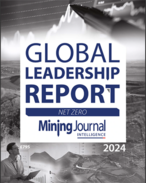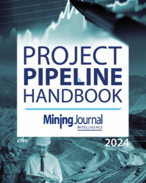This article is 11 years old. Images might not display.
The report, by Graham Larcombe and SGS Economics and Planning, claims record mining profits over recent years have far outstripped growth in taxes and royalties.
The report also said the wide array of deductions available to miners had left them with a corporate tax rate lower than any other industry.
The wide-ranging report said the share of industry income going to workers had fallen from 30% in 1990 to 20% now, while industry cash flow after operating costs had nearly doubled from 2006-07 to 2011-12.
It also said fly-in fly-out workers were stretching resources in mining communities, which were lagging behind in social infrastructure and services.
Analysts in the report said mining had not driven enough growth to other parts of the economy, particularly in manufacturing, and called for a sovereign wealth fund to use proceeds from resources development to invest in nation-building projects.
"We need to do better. We've just experienced an investment boom of the like we've never seen before and we're in the middle of a production boom with many years to go," CFMEU Mining and Energy general secretary Andrew Vickers said.
"We can't keep squandering the opportunity to deliver real benefits to Australians from the finite mineral resources that belong to all of us."
Many of the report's findings are disputed by the mining industry, particularly when it comes to the industry's tax and community contributions.
Earlier this year, the Minerals Council said the mining industry had paid almost $117 billion in company tax and royalties since 2006-07, and faced an effective tax rate in excess of 40%.
The council also said a survey of 25 Australian mining companies found that $34.7bn was spent on community infrastructure, indigenous contractors, local suppliers, and other activities in 2011-12.























